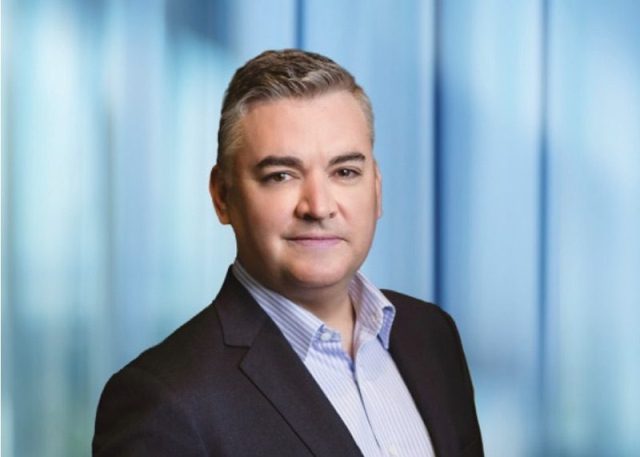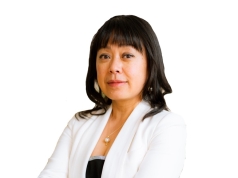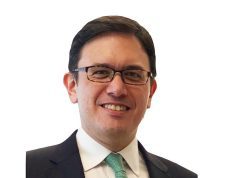Hotspot: Alternatives & Private Markets with Richard Surrency, Franklin Templeton Head of Private Markets & Alternatives APAC
An exclusive interview with Richard Surrency, Franklin Templeton Head of Private Markets & Alternatives APAC on investing in Alternatives & Private Markets. Franklin Templeton manages around $212 billion of private market and alternative solutions. View key highlights and read the full interview below.
“ Private banks, family offices and HNW clients were unwilling to accept an illiquidity premium for markets that were viewed as untested “
Richard Surrency, Franklin Templeton Head of Private Markets & Alternatives APAC

Richard Surrency is Head of Private Markets & Alternatives, APAC, responsible for growing Franklin Templeton’s alternative business in Asia. Richard brings with him over 2 decades of experience in the financial industry. He spent 7 years at Algebris Investments where he was responsible for capital raising for their long-only and alternative investment strategies with specific market coverage of APAC and the Middle East. Prior to this role he was Co-Head APAC for Legal & General Investment Management, Head of Transition Management Asia at Morgan Stanley, and Head of Regional Sales for the Bank of New York Mellon in Singapore. Franklin Resources is a global investment management organization with subsidiaries operating as Franklin Templeton and serving clients in over 155 countries. With offices in more than 30 countries and approximately 1,300 investment professionals, the California-based company has 75 years of investment experience and approximately $1.45 trillion in assets under management (31/5/22). Visit: Franklin Templeton
Hotspot: Alternatives & Private Markets
Private markets, alternative investments, private equity, venture capital, private credit, hedge funds are hot topic today. Being able to generate 10%, 20% or 30% returns on portfolio uncorrelated to market / public market is a dream come true for any investment manager, advisor, private banker, family office, professional investor or UHNW & HNW investor today. Is this really possible? What are the trade-offs? View key highlights and read the full interview below.
Key Interview Highlights with Richard Surrency
On Private markets, alternative investments, private equity, venture capital, private credit, hedge funds
- “Private markets have been the domain of large institutional asset owners such as sovereign wealth fund, insurers, and pension funds”
- Institutional Investors: Invest large capital, invest for a long time, have investment professionals
- To unlock returns in Private markets: illiquidity premium – clients lock-up their capital for long periods of time to unlock the underlying value of the assets they invested in
- In the Past: Private banks, family offices and HNW clients were unwilling to accept an illiquidity premium for markets that were viewed as untested versus more traditional investment strategies
- Today: Investors agree to the illiquidity of the underlying strategies in return for higher long term return
” Today: Investors agree to the illiquidity of the underlying strategies in return for higher long term return “
- Increased interest in private markets: private equity, private credit, infrastructure, venture capital and other illiquid strategies demonstrates long-term sustainable returns
- Private Markets becoming Popular: Underlying asset classes became more mainstream in terms of publicity
- Why Alternatives & Private Markets: Diversify portfolios, generate alpha, income needs
- On liquidity: Liquidity optionality has become more prevalent in private markets as investment managers seek to increase total addressable market for their strategies
- Today private market liquidity strategies: shorter lock-up requirements, liquidity optionality, other innovative solutions
- Most Popular: Private equity remains the largest private market strategy in terms of total assets, Private credit has seen increasing interest, Venture capital has also been a highlight in the past few years.
- Recommendation: Understand the asset classes, strategies, liquidity, and underlying managers histories & performance against your investment requirements before proceeding in private markets
- China tech crash contributed to interest in private credit funds: Comparison between China tech stocks and private credit is not easy to make, with China tech being a high return equity position, compared to private credit which is a long-term income style investment strategy. Could be attributed to the increased availability of private credit funds across a wider liquidity spectrum (more investors can participate in this relatively new asset class than in the past).
- On Private Credit: The stable return profile of private credit is also a major draw for investors who seek regular income (often in strategies that can protect against inflation)
- Franklin Templeton manages $212 billion of private market & alternative solution: Wide selection of private market solutions encompassing private equity, private credit, real estate, infrastructure, venture capital and hedge funds, available in several liquidity profiles
- If new / less familiar with Private Markets: Understand investment objectives, liquidity requirements, research is key, external professional advice is always recommended
- “Private markets encompasses so many individual strategies that there is no single ‘one size fits all’ approach”
The Full Interview:
Richard Surrency on Alternatives & Private Markets
Franklin Templeton Head of Private Markets & Alternatives APAC

1. Why are Alternatives & Private Markets such a hot topic among family offices, private bankers & UHNW & HNW clients today?

Richard: In the past, private markets have been the domain of large institutional asset owners such as sovereign wealth fund, insurers, and pension funds because these institutions had 3 key attributes: they were able to invest large amounts of capital over a long period of time and had investment professionals able to research and understand the underlying investment strategies to ensure alignment with their long-term investment goals.
Institutional Investors:
- Invest large amounts of capital
- Invest for a long period of time
- Investment professionals able to research & understand the underlying investment strategies
Key to this investment approach was the illiquidity premium applied to these investments – unlike more traditional liquid (easily purchased and sold) investments, these investment strategies demanded that clients lock-up their capital for long periods of time to unlock the underlying value of the assets they invested in. For many years, private banks, family offices, and HNW clients were unwilling to accept an illiquidity premium for markets that were viewed as untested versus more traditional investment strategies.
As private equity, private credit, infrastructure, venture capital and other illiquid strategies began to demonstrate long-term sustainable returns, and the underlying asset classes became more mainstream in terms of publicity, private banks, family offices, and HNW clients began to demand access. Key to this change in sentiment was the acceptance of these investors to agree to the illiquidity of the underlying strategies in return for a higher long term return profile.
Furthermore, amid rich valuations in public markets, investor demand for alternative investment strategies have witnessed significant growth across the Asia region. Investors are increasingly dipping their toes in alternatives and private markets to diversify their portfolios, generate alpha and address prevailing income needs.
” Private markets have been the domain of large institutional asset owners such as sovereign wealth fund, insurers, and pension funds “
2. 7 to 10 years would be considered long duration for non-institutional investors. Is there liquidity throughout the investment cycle? Are there also short duration private market funds?

Richard: Liquidity optionality has become more prevalent in private markets as investment managers seek to increase total addressable market for their strategies. In many respects this represents the movement towards the democratization of private market strategies by providing access to a much wider customer set whilst also recognizing their potential requirement for liquidity.
Today, it is not unusual to see private market strategies available in a number of liquid formats, including shorter lock-up requirements, liquidity optionality during the life of the fund, and other innovative solutions. Franklin Templeton is a strong supporter of the democratization of private market strategies and are introducing innovative liquidity solutions across almost every private market strategy we offer.
” shorter lock-up requirements, liquidity optionality during the life of the fund “
3. What are the most sought-after investments / funds / assets in private markets?

Richard: This is highly dependent on each individual investor’s objectives. Private equity remains the largest private market strategy in terms of total assets, and it continues to attract investors. Private credit has seen increasing interest and we expect robust growth moving forward due to the stable income profiles of these strategies. Venture capital has also been a highlight in the past few years, led by the growth of the technology markets globally, and in many cases the top venture capital managers have been able to return outsized returns to their investors.
My recommendation is to always understand the asset classes, strategies, liquidity, and underlying managers histories and performance against your investment requirements before proceeding in private markets. There are so many nuances that impact investment strategies and outcomes that investors should spend the time and effort, and seek external professional advice, before considering private market solutions for their portfolios.
” Private equity remains the largest private market strategy in terms of total assets “
4. Recently with the crash in China / technology stocks of 40% to 50%, family offices have taken an interest in private credit funds. Do you see increased allocation? Or there is not much of a change as private market investors are typically invested for 7 to 10 years or longer.

Richard: Private credit has seen significant growth in the past five years, and market surveys indicate that momentum will continue to remain strong. The comparison between China tech stocks and private credit is not easy to make, with China tech being a high return equity position, compared to private credit which is a long-term income style investment strategy. Moving from China tech to private credit would likely indicate a risk-off investment strategy, with investors looking for more stable returns over an investment cycle.
The increase in allocations to private credit strategies by investors could be attributed to the increased availability of private credit funds across a wider liquidity spectrum, meaning more investors can participate in this relatively new asset class than in the past. The stable return profile of private credit is also a major draw for investors who seek regular income, often in strategies that can protect against inflation.
” stable return profile of private credit is also a major draw for investors “
5. Many investors & family offices in Asia may not realise that Franklin Templeton manages over $212 billion of private market and alternative solutions. How would these investors engage with Franklin Templeton to understand the wide range of investment solutions you offer?

Richard: We have an extremely wide selection of private market solutions encompassing private equity, private credit, real estate, infrastructure, venture capital and hedge funds, available in several liquidity profiles that investors may find attractive.
The most important goal for Franklin Templeton is to ensure that the widest range of investors have access to our private market investment solutions, in line what we regard as the democratization of private markets. This has been a very important business strategy for us and investors can look forward to many more innovations from Franklin Templeton in the near future.
” Franklin Templeton Manages $212 Billion in private equity, private credit, real estate, infrastructure, venture capital and hedge funds “
6. For family offices or investors who are less familiar with private markets, what are key factors they should consider? Or should they allocate their private markets portfolio to a Franklin Templeton discretionary / managed account mandate?

Richard: We would always recommend understanding one’s investment objectives and liquidity requirements before considering private market investments. Research is key, and in many cases external professional advice is always recommended. Private markets encompasses so many individual strategies that there is no single ‘one size fits all’ approach.
For Franklin Templeton, specialization in private market strategies is vital, so we have a highly diverse set of private market investment managers that specialize in their unique markets and strategies, with long-term performance track records. I believe our competitive advantage is our desire to work closely with investors to ensure that they have the information, clarity, and confidence in our strategies that they require before making an investment decision.
” Private markets encompasses so many individual strategies that there is no single ‘one size fits all’ approach “
This is an exclusive interview with Richard Surrency, Franklin Templeton Head of Private Markets & Alternatives APAC on investing in Alternatives & Private Markets. Franklin Templeton manages around $212 billion of private market and alternative solutions. Visit: Franklin Templeton
Richard Surrency, Franklin Templeton Head of Private Markets & Alternatives APAC

Richard Surrency is Head of Private Markets & Alternatives, APAC, responsible for growing Franklin Templeton’s alternative business in Asia. In the role, Richard develops country level strategies and partners with various alternative investment groups, plus product and distribution teams, to generate new product solutions that meet the needs of the firm’s institutional and more sophisticated clients in the Asia region. Richard brings with him over 2 decades of experience in the financial industry. He spent 7 years at Algebris Investments where he was responsible for capital raising for their long-only and alternative investment strategies with specific market coverage of APAC and the Middle East. Prior to this role he was Co-Head APAC for Legal & General Investment Management, Head of Transition Management Asia at Morgan Stanley, and Head of Regional Sales for the Bank of New York Mellon in Singapore. Richard holds a bachelor’s degree from Arizona State University and a master’s degree from MIT Sloan School of Business.
 Franklin Resources, Inc. [NYSE:BEN] is a global investment management organization with subsidiaries operating as Franklin Templeton and serving clients in over 155 countries. Franklin Templeton’s mission is to help clients achieve better outcomes through investment management expertise, wealth management and technology solutions. Through its specialist investment managers, the company offers boutique specialization on a global scale, bringing extensive capabilities in equity, fixed income, multi-asset solutions and alternatives. With offices in more than 30 countries and approximately 1,300 investment professionals, the California-based company has 75 years of investment experience and approximately US$1.45 trillion in assets under management as of May 31, 2022. For more information, please visit www.franklintempleton.com.sg
Franklin Resources, Inc. [NYSE:BEN] is a global investment management organization with subsidiaries operating as Franklin Templeton and serving clients in over 155 countries. Franklin Templeton’s mission is to help clients achieve better outcomes through investment management expertise, wealth management and technology solutions. Through its specialist investment managers, the company offers boutique specialization on a global scale, bringing extensive capabilities in equity, fixed income, multi-asset solutions and alternatives. With offices in more than 30 countries and approximately 1,300 investment professionals, the California-based company has 75 years of investment experience and approximately US$1.45 trillion in assets under management as of May 31, 2022. For more information, please visit www.franklintempleton.com.sg
Sign Up / Register
Caproasia Users
- Manage $20 million to $3 billion of assets
- Invest $3 million to $300 million
- Advise institutions, billionaires, UHNWs & HNWs
Caproasia Platforms | 11,000 Investors & Advisors
- Caproasia.com
- Caproasia Access
- Caproasia Events
- The Financial Centre | Find Services
- Membership
- Family Office Circle
- Professional Investor Circle
- Investor Relations Network
Monthly Roundtable & Networking
Family Office Programs
The 2025 Investment Day
- March - Hong Kong
- March - Singapore
- July - Hong Kong
- July - Singapore
- Sept- Hong Kong
- Sept - Singapore
- Oct- Hong Kong
- Nov - Singapore
- Visit: The Investment Day | Register: Click here
Caproasia Summits
- The Institutional Investor Summit
- The Investment / Alternatives Summit
- The Private Wealth Summit
- The Family Office Summit
- The CEO & Entrepreneur Summit
- The Capital Markets Summit
- The ESG / Sustainable Investment Summit







































